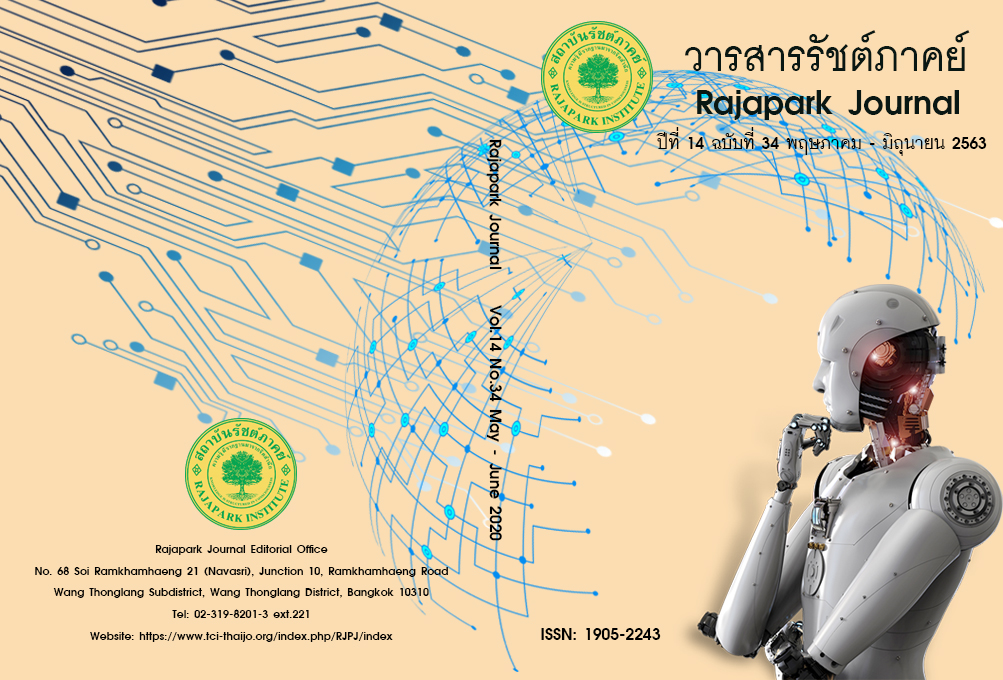The Special Powers Under the Constitution of the Kingdom of Thailand (interim) B.E. 2557 (2014), Section 44 of the National Council for Peace and Order
Main Article Content
Abstract
The objectives of this research are 1) to study the causes of usage 2) to study the usage characteristics and 3) to study the effectiveness. By using the special powers of Article 44 by the Constitution of the Kingdom of Thailand B.E. 2557 in terms of national security, government administration, security for society and people, and economic correction. This research is a qualitative. By using document research and field research by in-depth interviews from key informant persons that involve the use of special powers. The research results were found as follows; 1) the characteristics of using special powers with absolute power to use both the legislative power 2) It is an exercise of power in the condition of exemption that excludes all other laws. 3) It results in the NCPO enabling the country to be managed without opposition. And able to solve administrative problems that cannot be done in normal situations causing political legitimacy and enabling the NCPO to achieve political goals 4) Impact on the people lack of political freedom lack of inspection Balance by the rule of law unable to sue government officials.
Article Details
Views and opinions appearing in the Journal it is the responsibility of the author of the article, and does not constitute the view and responsibility of the editorial team.
References
ILAW. (2018). Four years of The NCPO, The use of Article 44. Retrieved December 1, 2018, from https://ilaw.or.th/node/4823
Jarmarik, S. (2012). Political thoughts from Plato to the present. Bangkok: Viteetat.
Mulapruk, T. (1980). The use of special powers of management. Master of Laws Thesis. Chulalongkorn University.
National Research Council of Thailand. (1998). Constitution of the French Republic. Retrieved September 12, 2018, from http://www2.nrct.go.th/Portals/0/data/etranslatedbook/book/รัฐธรรมนูญฝรั่งเศสฉบับสมบูรณ์.pdf
Niyomves, B. (2016). The Acceptance of the Military Role in Thai Politics by People in the Bangkok
Metropolitan Region: A Case Study of the May 22, 2014, Coup d’état. Rajapark Journal, 10(20), 1-12.
Saengkanokkun, P. (2010). "Exempt conditions" in the opinion of Giorgio Agamben, Same Sky
Magazine, 8(1), 84-91.
Siha, P. (2017). Political conflicts and the 2014 coup d'etat. Kasetsart University Political Science Review Journal (KUPSRJ), 4(2), 145-166.
Strauss, L., & Cropsey, J. (2009). History of Political Philosophy. Bangkok: Copfai.
Wongkomolrachet, D. (1983). Political Science. Bangkok: Aksorn Chareontat.


